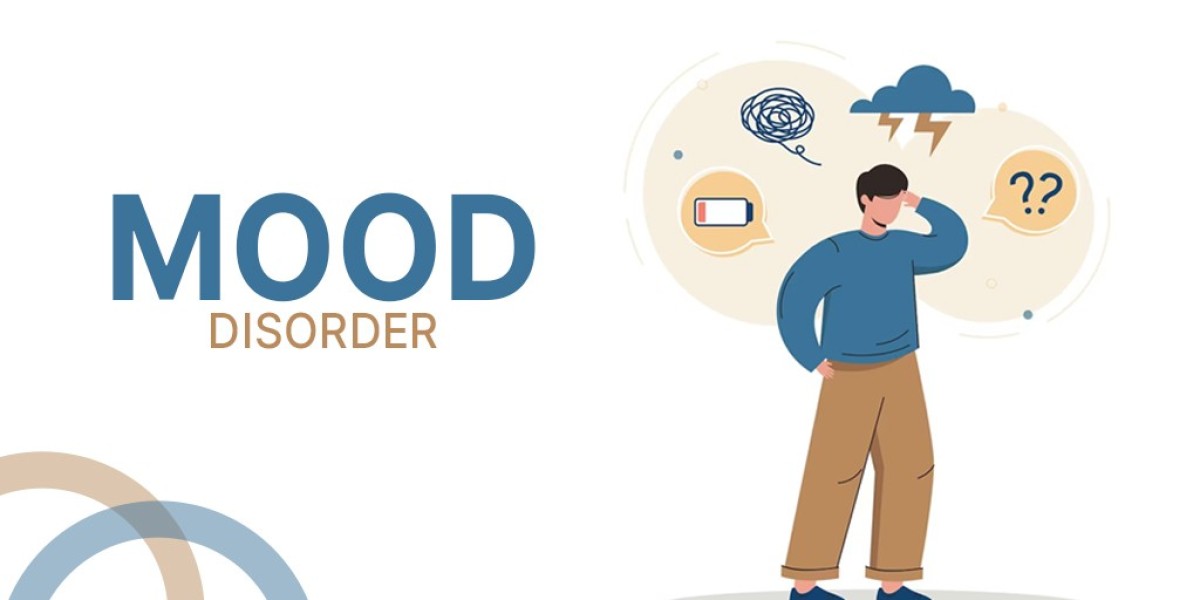Introduction:
Mood disorders cast a shadow on the mind, affecting emotions, thoughts, and overall well-being. These complex mental health conditions impact millions of individuals worldwide, causing significant distress and impairing daily functioning. Understanding mood disorders is crucial for accurate diagnosis, effective treatment, and compassionate support. This article delves into the depths of mood disorders, exploring their types, causes, symptoms, and the importance of seeking professional help.
Types of Mood Disorders:
Mood disorders encompass a range of conditions, each characterized by distinct symptoms and patterns. The most common mood disorders include major depressive disorder, bipolar disorder, and persistent depressive disorder (dysthymia). The Major depressive disorder involves persistent feelings of sadness, hopelessness, and a loss of interest in activities. Bipolar disorder manifests as alternating episodes of mania (elevated mood, increased energy) and depression. Persistent depressive disorder entails long-lasting feelings of depression and a general lack of interest or pleasure. Other mood disorders include seasonal affective disorder (SAD), postpartum depression, and cyclothymic disorder.
Causes and Contributing Factors:
Mood disorders arise from a complex interplay of genetic, biological, environmental, and psychological factors. Genetic predisposition plays a significant role, as individuals with a family history of mood disorders are more susceptible. Neurochemical imbalances, specifically involving serotonin, norepinephrine, and dopamine, are implicated in mood regulation. Environmental factors such as trauma, chronic stress, substance abuse, and significant life changes can trigger or exacerbate mood disorders. Additionally, personality traits, coping styles, and social support systems influence an individual's vulnerability to these conditions.
Symptoms and Diagnostic Criteria:
The symptoms of mood disorders can significantly impact various aspects of life, including mood, energy levels, sleep patterns, appetite, and cognitive functioning. In major depressive disorder, individuals experience persistent feelings of sadness, hopelessness, and a loss of interest in activities once enjoyed. They may also exhibit changes in appetite and weight, sleep disturbances, fatigue, difficulty concentrating, and recurring thoughts of death or suicide. Bipolar disorder involves distinct manic and depressive episodes, characterized by extreme shifts in mood, energy levels, impulsivity, and self-esteem. To diagnose mood disorders, mental health professionals evaluate the presence, duration, and severity of symptoms using standardized criteria such as the Diagnostic and Statistical Manual of Mental Disorders (DSM-5).
Impact on Daily Life:
Mood disorders can significantly impair an individual's ability to function in daily life. The persistent feelings of sadness, fatigue, and hopelessness can lead to difficulties in maintaining relationships, performing at work or school, and engaging in social activities. The fluctuating mood states in bipolar disorder can disrupt daily routines and strain interpersonal relationships. Additionally, mood disorders often co-occur with other mental health conditions such as anxiety disorders and substance use disorders, further exacerbating the challenges faced by individuals.
Treatment Approaches:
Effective treatment strategies for mood disorders involve a combination of pharmacotherapy, psychotherapy, and lifestyle modifications. Antidepressant medications, mood stabilizers, and antipsychotics may be prescribed to manage symptoms and stabilize mood. Psychotherapy, such as cognitive-behavioral therapy (CBT), interpersonal therapy (IPT), and dialectical behavior therapy (DBT), can help individuals develop coping skills, challenge negative thought patterns, and improve interpersonal relationships. In some cases, electroconvulsive therapy (ECT) or transcranial magnetic stimulation (TMS) may be considered for treatment-resistant mood disorders. It is crucial to tailor treatment approaches to individual needs, considering the specific type and severity of the mood disorder.
Seeking Professional Help:
Seeking professional help is vital for individuals experiencing mood disorders. Mental health professionals, including Sugar Land Psychiatrists, psychologists, and licensed therapists, can provide accurate diagnoses, develop personalized treatment plans, and offer ongoing support. They can also monitor medication management and provide therapy to address underlying emotional issues. It is essential to overcome any reluctance or stigma associated with seeking help and recognize that treatment can lead to improved quality of life.
Support and Self-Care:
Living with a mood disorder requires proactive self-care and a robust support network. Engaging in self-care practices such as maintaining a balanced routine, practicing relaxation techniques, engaging in regular exercise, and prioritizing healthy sleep and nutrition can promote overall well-being. Building a support network of understanding family members, friends, or support groups can provide valuable emotional support and a sense of belonging. Additionally, psychoeducation about mood disorders can empower individuals to understand their condition better, identify triggers, and develop effective coping strategies.
Conclusion:
Mood disorders cast shadows on the mind, affecting emotions, thoughts, and daily functioning. By understanding the different types of mood disorders, recognizing the contributing factors, and seeking professional help, individuals can embark on a path toward recovery and improved well-being. It is essential to reduce stigma, foster compassion, and provide adequate support for those experiencing mood disorders. With the right treatment, support, and self-care, individuals can navigate the shadows of the mind and find hope, resilience, and brighter days ahead.








